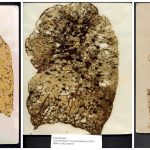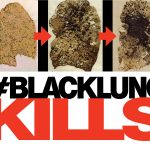
A new federal rule would cut miners’ exposure to silica dust, but miners and their advocates have concerns about whether industry will follow the new rule under the current enforcement mechanisms.

A new federal rule would cut miners’ exposure to silica dust, but miners and their advocates have concerns about whether industry will follow the new rule under the current enforcement mechanisms.

In April, the Mine Safety and Health Administration announced the final version of a rule meant to protect coal miners from respirable silica. The announcement was a long time coming.

Yesterday the Biden administration’s Mine Safety and Health Administration announced that it finalized a rule to protect miners from respirable silica — a significant driver of the resurgence of black lung disease in Central Appalachia.

Coal miners and black lung advocates filled several back rows of the auditorium at the Mine Safety and Health Administration Academy just outside of Beckley, West Virginia, on the morning of Aug. 10th to provide comments on the agency’s draft rule to protect miners from respirable silica dust.

During a public hearing held today in Beckley, West Virginia, a number of coal miners and advocates spoke out in support of strengthened silica dust exposure standards proposed by the U.S. Mine Safety and Health Administration in response to an epidemic of new black lung cases among coal miners while highlighting areas where the proposed rule could be improved.

The Mine Safety and Health Administration’s proposed new regulations would reduce worker exposure to silica dust, but advocates say better enforcement measures are needed.

Today, the Biden Administration’s Mine Safety and Health Administration (MSHA) released a long-delayed draft rule to protect coal miners from exposure to respirable silica — the principal cause of the resurgence of deadly black lung disease.

Expected new silica dust regulations in mines could combat the rise of black lung disease. However, the effects of an ongoing federal silica enforcement initiative remain unclear.

On Monday, the U.S. Centers for Disease Control and Prevention shared a new study that sounds a clear alarm bell to leaders across the country about the dire need for a renewed focus on safeguarding the health of coal miners across the country.

Miners with black lung and their advocates scored a huge victory in the recently signed Inflation Reduction Act, which permanently extended the black lung excise tax that supports the Black Lung Disability Trust Fund.